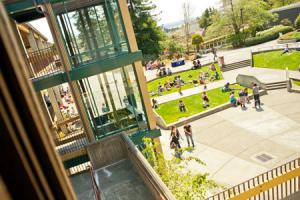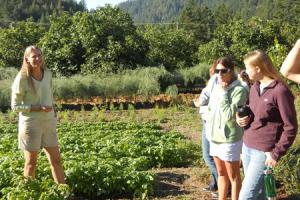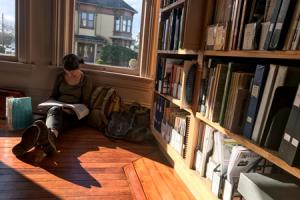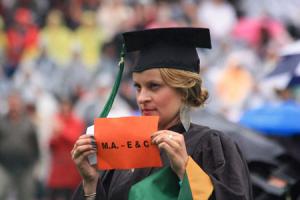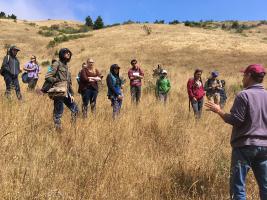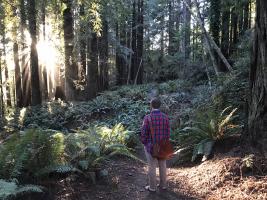Spring 2013
Unless otherwise noted, events are 5:30pm-7:00pm Thursdays in BSS 166
John Laird
February 21
“California’s Sustainable Resources Future”
watch full presentation
John Laird was appointed California Secretary for Natural Resources by Governor Jerry Brown on January 5, 2011. He has spent 35 years in public service, including 23 years as an elected official. In 2002, Laird was elected to represent the 27th Assembly District in the California Assembly, which includes portions of Santa Cruz, Monterey and Santa Clara Counties. While serving the maximum three terms in the Assembly, Laird authored 82 bills that were signed into law. Laird was a member of the State Integrated Waste Management Board from 2008-2009. Laird has been a long-time resident of Santa Cruz with his spouse John Flores. He has traveled extensively, is fluent in Spanish, enjoys conducting family history research, and is a life-long Chicago Cubs fan.
Nicholas L. Lam
March 7
“Let There Be (Clean) Light: How Kerosene Lighting in Developing Countries Is Contributing to Climate Warming and the Global Disease Burden”
watch full presentation
Nick’s primary research interests address the relationships among household fuel use, air quality and human health. His current research focuses on measuring and modeling the contribution of household cooking and lighting in developing countries on human exposure, disease risk, and emissions of climate-altering air pollutants. He has conducted and managed numerous evaluations of cookstove performance and program impacts throughout Africa, South Asia and Latin America. This experience has allowed him the opportunity to develop curricula and training programs for local organizations and researchers on techniques for monitoring and evaluating household energy projects. He most recently served as director of the first US CDC Summer Cookstove Research Institute in Antigua, Guatemala. Prior to his efforts in household energy, he investigated the effects of air pollution on lead paint deterioration and its potential contribution to historic lead exposure in children. He is currently a doctoral student in Environmental Health Sciences at the University of California, Berkeley.
Julie Guthman
March 14
“Fat Places? Exploring Environmental Causes of Obesity”
Julie Guthman is a professor of social sciences at the University of California at Santa Cruz where she teaches courses primarily in global political economy and the politics of food and agriculture. Since receiving her PhD in 2000 in Geography from the University of California at Berkeley, she has published extensively on contemporary efforts to transform the way food is produced, distributed, and consumed, with a particular focus on voluntary food labels, community food security, farm-to-school programs, and the race and class politics of “alternative food.” Her first book, Agrarian Dreams: the Paradox of Organic Farming in California, (University of California, 2004), won the Frederick H. Buttel Award for Outstanding Scholarly Achievement from the Rural Sociological Society and the Donald Q. Innis Award from the Rural Geography Specialty Group of the Association of American Geographers. Her recent book, Weighing In: Obesity, Food Justice, and the Limits of Capitalism (University of California, 2011) was awarded the 2012 James M. Blaut Innovative Publication Award from the Cultural and Political Ecology Specialty Group of the Association of American Geographers and the 2012 Book Award from the Association for the Study of Food and Society.
Jonathan Woolley
March 28
“Radically Efficient Design for Zero Net Energy Buildings”
watch full presentation
Jonathan Woolley is an Associate Engineer with the Western Cooling Efficiency Center at the University of California Davis. Woolley’s building science research focuses on design, development and control of low energy mechanical systems. His efforts target full-scale demonstration and evaluation of emerging technologies for commercial and residential buildings, with a focus on strategies to enable Zero Net Energy construction. While these demonstrations employ cutting edge mechanical technologies, his building design philosophy is founded on passive techniques that reduce the need for active mechanical systems.
Mr. Woolley will share about the integrative design of a Zero Net Energy home in Davis, CA that will generate enough electricity on site to cover household needs, plus the annual drive cycle for an electric vehicle. The home employs many innovative design techniques to address inefficiencies in every aspect of standard residential construction. Some of these elements include a highly-insulated building envelope, radiant heating and cooling, grey water heat recovery, passive ventilation, very high efficiency nighttime cooling strategies, and multi-function mechanical systems to provide heating, cooling, and domestic hot water. The home is slated for construciton in 2013 and should serve as an example and research case to support California’s goals for Zero Net Energy residential construction by 2020.
Bill Stewart
April 4
“Timber Harvests and Managed Forests: Good or Bad for Climate Change?”
Bill Stewart is a Cooperative Extension Forestry Specialist based at the University of California Berkeley since 2007. He is also the Director of the Center for Forestry that oversees Berkeley’s research forests and the Co-Director for the Center for Fire Research and Outreach. His research and extension efforts focus on defining and promoting sustainable forest management activities that will have both local and global benefits. Before completing his PhD on California forestry, he spent a decade working in Asia on forestry and rural development projects.
Carol Rische and Sheri Woo
April 11
“Evaluating Mad River Water Use Options: A Local Issue with Regional Impacts”
watch full presentation
Carol Rische joined the Humboldt Bay Municipal Water District (HBMWD) in 1996, and for three years, worked in an administrative capacity for the former General Manager, Art Bolli. In March 2000 she was appointed General Manager and has been serving in that capacity since that time.
Prior to joining the HBMWD, Carol worked for PG&E for 12 years in their corporate headquarters (San Francisco), first in an engineering capacity, then managerial.
Carol earned her Bachelor of Science degree in Mechanical Engineering from the University of California, Davis and her Master of Business Administration from California State University, Hayward. She is a registered Professional Engineer.
Sheri Woo is a licensed civil engineer who writes environmental science content. She prepares permitting documents with HT Harvey & Associates, is a Board Director of the Humboldt Bay Municipal Water District, holds shares in a local environmental firm, and is chair of the ArMack Orchestra parent committee, because in Humboldt County, one can’t have too many jobs.
Laurie Richmond
April 18
“Incorporating Human Dimensions into Environmental Management: A Story in Three Acts”
watch full presentation
Laurie Richmond is an assistant professor in the Department of Environmental Science and Management at Cal Poly Humboldt. Her research focuses on developing collaborative relationships with natural resource-dependent communities to examine how they navigate both political and ecological changes in their resource systems. She has worked with the Alaska Native village of Old Harbor Alaska, and with indigenous communities in New Mexico, Hawai`i, and the Commonwealth of the Norther Marianas Islands (CNMI) on natural resource issues.
Jen Marlow
May 2
“Climate Change and Human Rights: Justice Beyond Law”
watch full presentation
Jen Marlow co-founded Three Degrees, a multidisciplinary climate justice project, and is an Affiliate Professor at the University of Washington School of Law in Seattle. Jen graduated from Middlebury College in 2002 with a degree in environmental studies and literature, and earned her J.D. from the University of Washington School of Law in 2010. Prior to law school, Jen worked as an editor at Orion magazine and as a writer and editor at Ecotrust. Jen is a member of the Washington State Bar.

